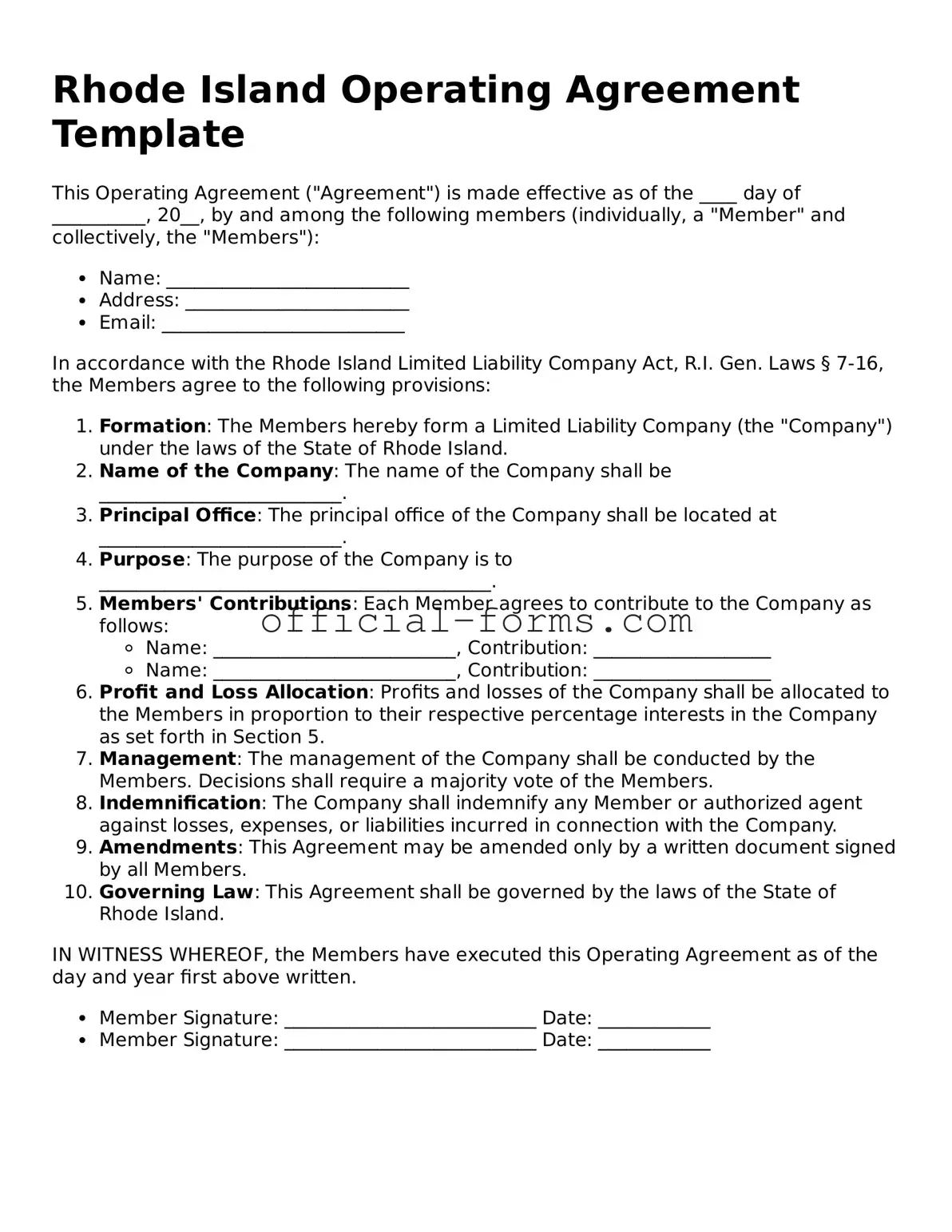Official Rhode Island Operating Agreement Document
The Rhode Island Operating Agreement form is a crucial document that outlines the management structure and operating procedures of a limited liability company (LLC) in Rhode Island. This agreement serves as a foundational blueprint, detailing the rights and responsibilities of members while establishing guidelines for decision-making and profit distribution. Understanding its components is essential for ensuring compliance and fostering a harmonious business relationship among members.
Open My Operating Agreement Now

Official Rhode Island Operating Agreement Document
Open My Operating Agreement Now
Don’t leave your form incomplete
Finish Operating Agreement online quickly from start to download.
Open My Operating Agreement Now
or
➤ PDF
